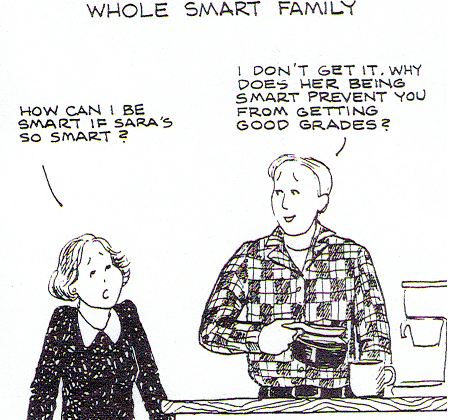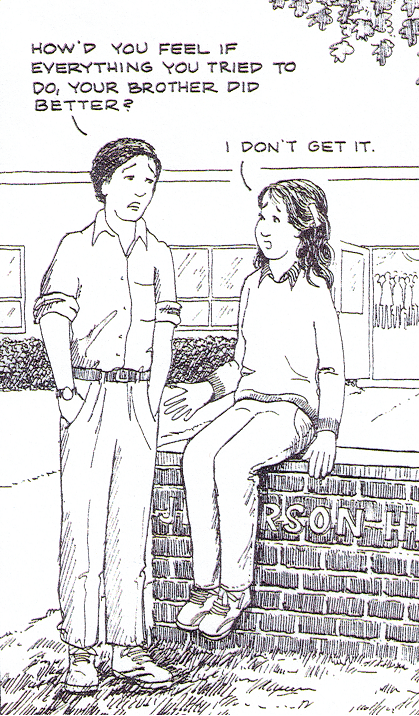SIBLING DIFFERENCES
“Labeling also causes children to Sometimes, second or third children feel inadequate by comparison to a first sibling and thus search for different areas of expertise. Parents often reinforce those differences because they want to encourage self-esteem in each child and also fear that the second or third child may not be as skilled as the first child. That process often results in parental labeling of each child. For example, if the first child is considered a scholar, the second child may be referred to as the creative child, the social child, or the athlete. Those labels may increase the competitive-ness within the family because each child believes they should be best in the family at something. Labeling also causes children to assume they are not good at whatever another sibling is best at. So the scholars may assume they can’t be creative, and the creative children may give up on study because they can’t get as good grades as their sibling. Children in the same family are surely different from each other but also have much in common. If the children study and do homework, it is likely they will all be reasonably good students and, indeed, families should encourage their children to know they can have a whole smart family. Children can also be physically fit, although they may surely choose different sports or activities to exercise their fitness. Even social skills can be learned, and although some children may enjoy friends more than others, labeling your children as the social ones has the impact of directing them to be the best partiers, and you will surely regret that label by their teenage years. When children are labeled best in a domain, they often do their best to prevent another sibling from encroaching on their domain. They feel ownership and feel threatened by a sister or brother who is as good in math or better in sports. Sometimes they even beg their parent not to let their siblings participate in their activities. It would be better to talk to your child about the competition they feel than to prevent another sibling from joining a particular activity. “... two sisters or brothers close In addition to genetics, the competition between siblings may be the most important reason why children raised in the same way are so different. It is not coincidental that two sisters or brothers close in age seem to be so different from each other. If one is neat, the other is often sloppy. If one is quiet, the other is often noisy. Children are attracted to being different than their siblings so they can receive their own special forms of parental attention. Some differences are not worrisome; however, important differences, such as achievement and underachieve-ment or honesty and dishonesty, will cause parents to find they have serious sibling problems on their hands. ©2010 by Sylvia B. Rimm. All rights reserved. This publication, or parts thereof, may not be reproduced in any form without written permission of the author. |
©2010 by Sylvia B. Rimm. All rights reserved.
Report any problems with this site to Webmaster@sylviarimm.com


 Sometimes you may find your children have little confidence in their abilities; thus, you may decide to protect that child’s domain. That would be particularly so if you have one child in the family who seems best at everything else.
Sometimes you may find your children have little confidence in their abilities; thus, you may decide to protect that child’s domain. That would be particularly so if you have one child in the family who seems best at everything else.